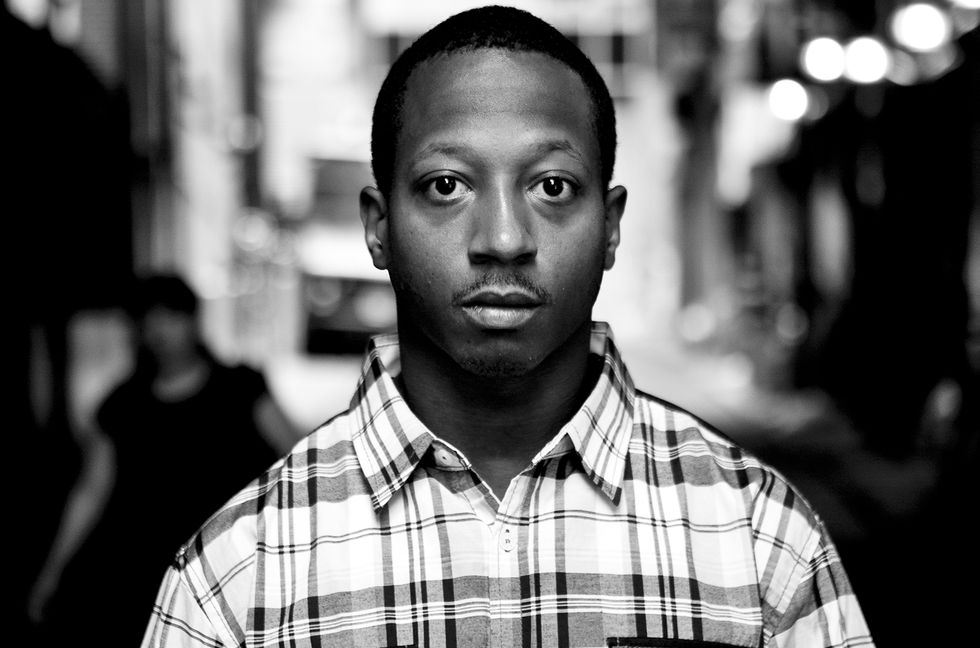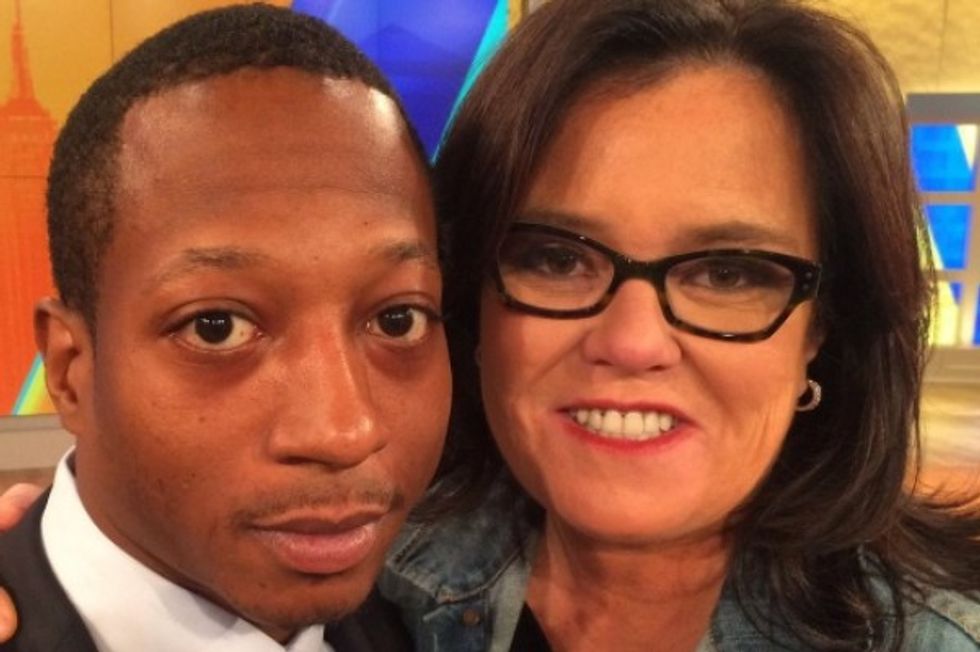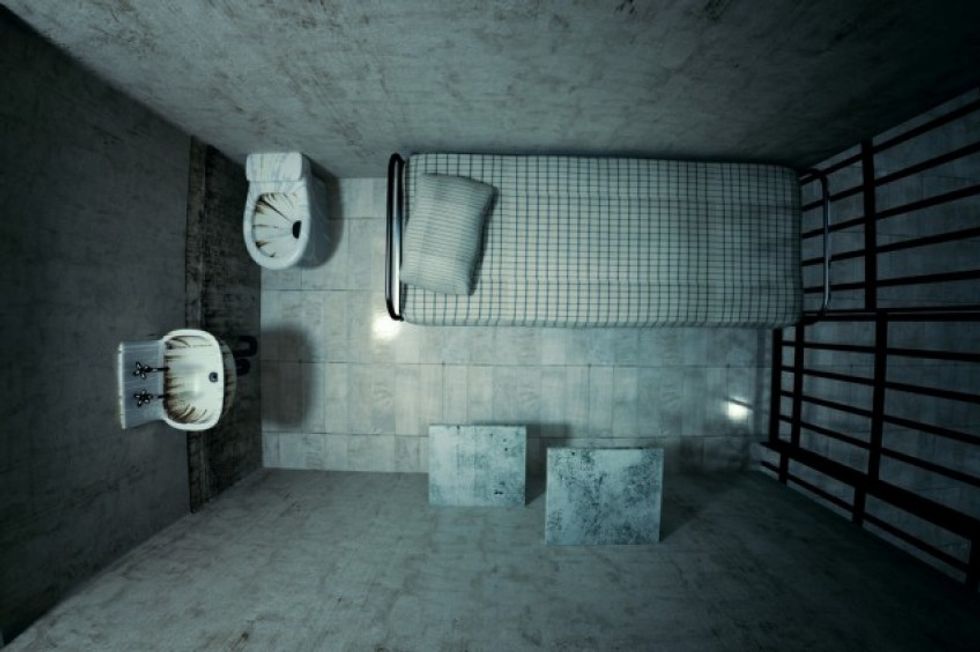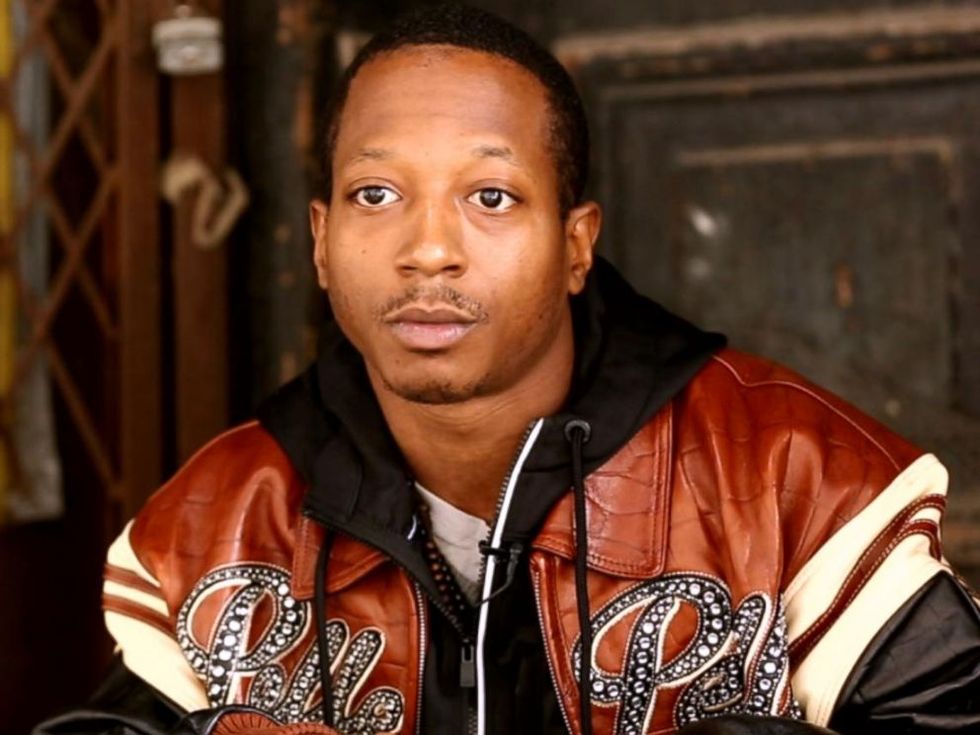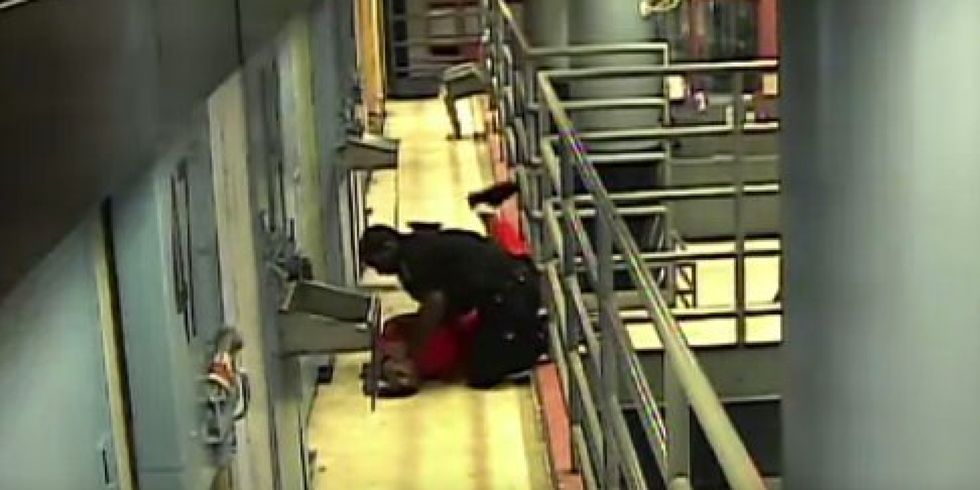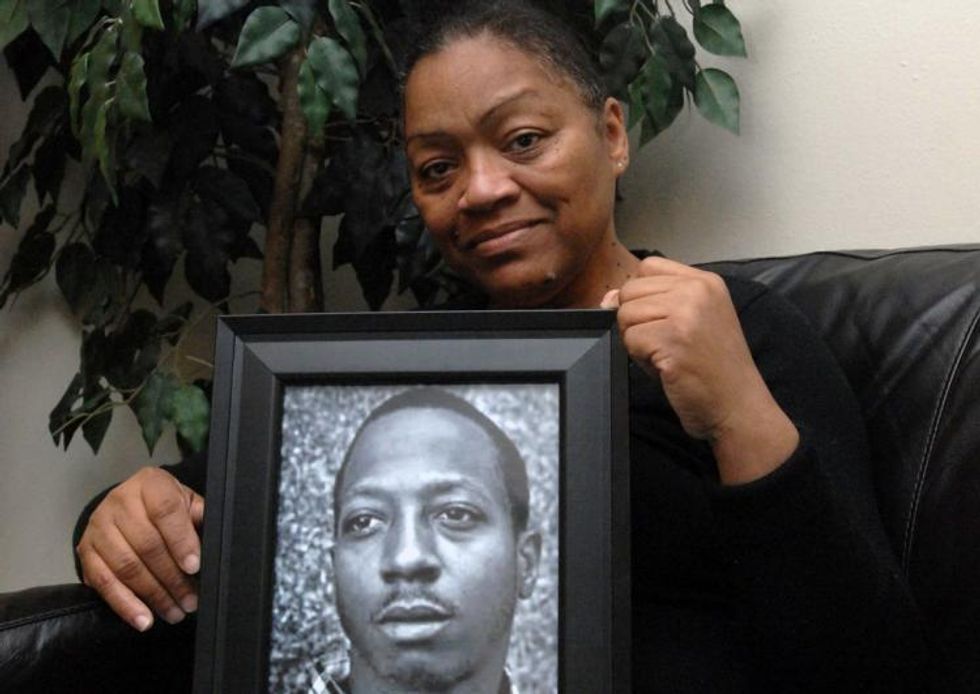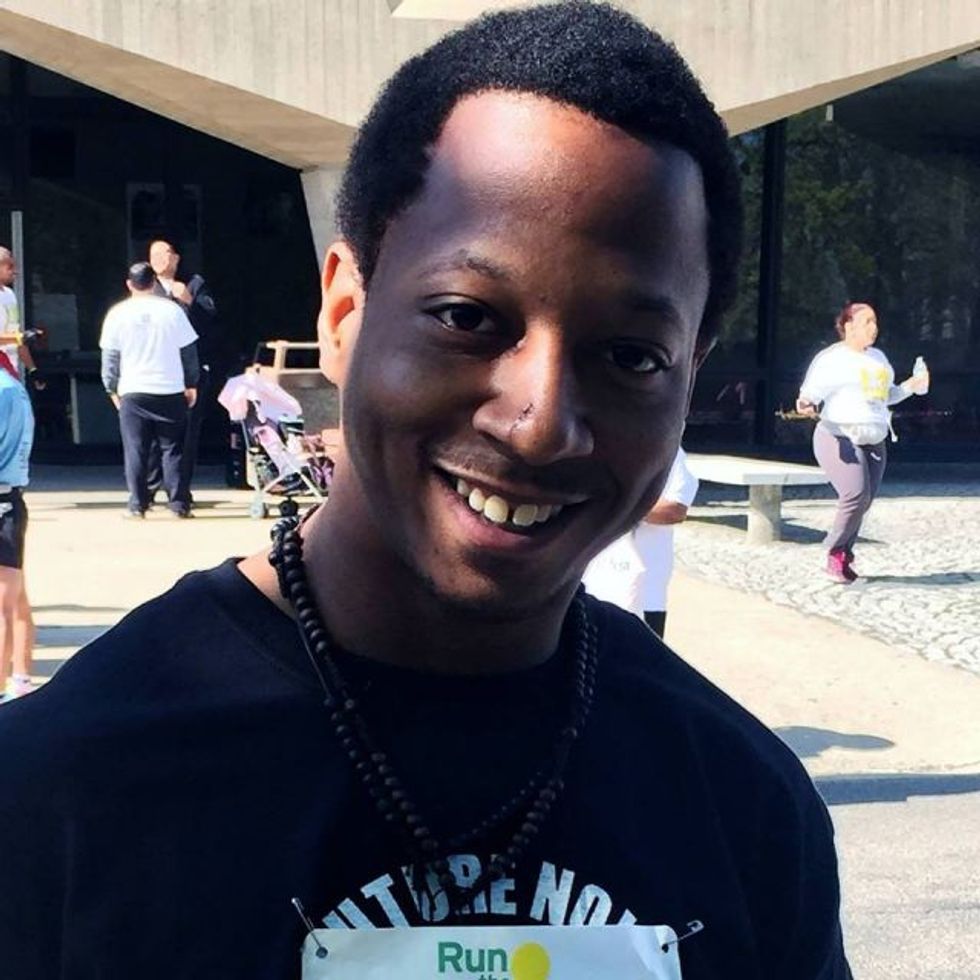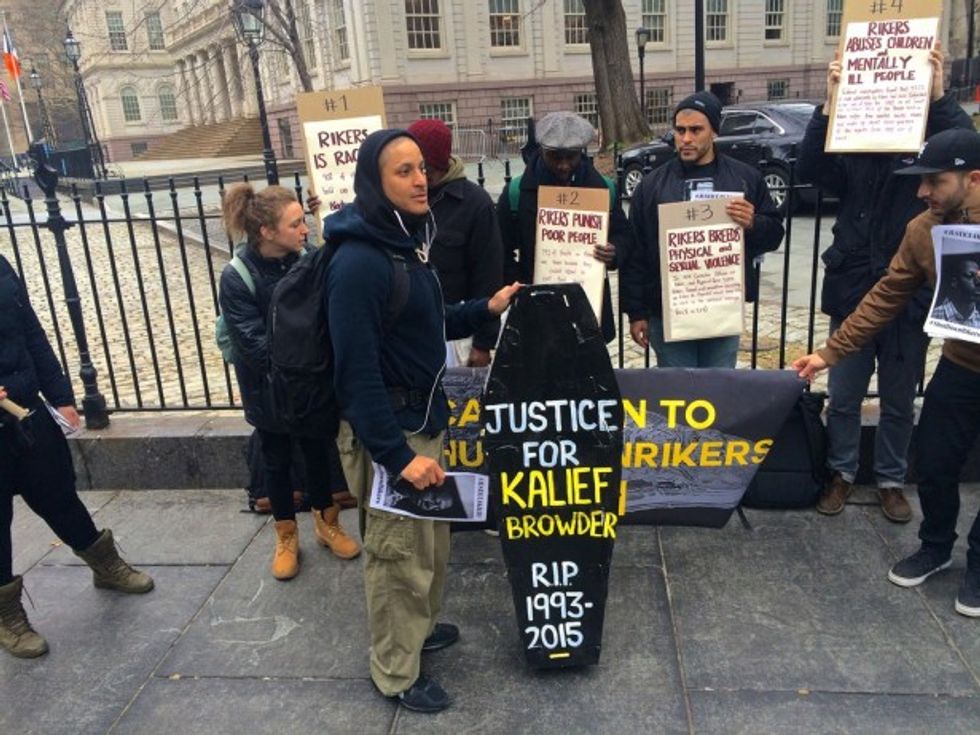A few days ago, I finally had the opportunity to watch Julia Willoughby Nason and Jay-Z's six-part documentary mini-series, "Time: The Kalief Browder Story", released throughout March and April of 2017. This was certainly not my first time hearing about Kalief Browder, a young Bronx native who was disgustingly abused by the corrupt and inhumane New York criminal justice system so horribly, that it ultimately resulted in the taking of his own life on June 6th, 2015.
His tragedy made national news after Jennifer Gonnerman published an article detailing Browder's experiences before, after, and during his time at the notoriously controversial correctional facility, Riker's Island, in the "New Yorker" in October of 2014. His story touched the lives of many include Rosie O'Donnell who brought Kalief onto her show, The View, which wouldn't be his only appearance on a major network show. ABC News and Huffington Post Live would also host segment interviews with this incredible individual.However, neither media attention nor his lawyer's, Paul Prestia's, fight for a monetary settlement for the multitude of infringements upon his fundamental civil rights, were not what Kalief needed to deal with the trauma and demons he'd been cursed with. Kalief served more than 1000 days in one of the most violent and nefarious prisons in the country, and over 70% of those days were spent in solitary confinement, a punishment designed to deliberately drive inmates into irrevocable psychosis.
If you haven't heard his story yet, I would highly recommend watching this documentary. I feel no written summary of what this innocent man had to suffer through will ever be sufficient.
While I cannot include the visuals that I feel are important to this case in my article due to its graphic nature, the videos and pictures I watched in this documentary humanize this disaster in the way it was meant to be told in order to reach those with the ability to make changes to the systematic monster that is the United States criminal justice system.
To me, Kalief's story parallels Emmett Till's in that it takes away the statistical quantifying of life that can result in unfortunate apathy when dealing with civil right injustices, and instead grabs the media and the public's attention by making the problem personal and human.
Kalief Browder was only sixteen years old when his life was changed, and essentially ruined, on Arthur Ave, a street right outside of my college campus, Fordham University, in the Bronx. He was accused of stealing a back-pack without a single scratch of evidence against him but would end up being imprisoned for three long years of his adolescence for the mere fact that his family couldn't afford a set bail of $3,000.
While inside the correctional facility, Kalief would go to court over 30 times, his trial consistently being ignored or pushed back for petty excuses. You see, Kalief refused, bravely, to accept a plea bargain with the court. "In 2011, in the Bronx," Gonnerman cited, "only a hundred and sixty-five felony cases went to trial; in three thousand nine hundred and ninety-one cases, the defendant pleaded guilty."
For the majority of the accused, admitting your guilt, even, in most situations, to a crime you didn't commit, is easier than actually trying to go to trial, and usually, ironically, gets you less incarceration time.
However, Kalief Browder recognized the lack of ethicality in this institution and took a steadfast stand for his truthful innocence. He did not steal a back-pack, and no one was going to pressure him into lying just to comply with an inherently corrupt program.
Speaking of programs, one thing I had not been privy to before watching this documentary series was that while in Rikers, Kalief was subjected to an exploitative network of correctional officers and the most influential inmates who controlled the social code and hierarchy of the community through violence and the trafficking of illegal paraphernalia, but mostly violence.
They referred to it as, "The Program", and basically you were either 'with it', or you weren't; Kalief was not. Because of this, and his personal style of standing up for what he believed was right and fair, Kalief endured countless beatings and abuse from both guards and fellow inmates, no matter which part of the prison to which he was relocated.
Two of these run-ins actually had accompanying video footage which surfaced through the New Yorker a few months after the original article was published. Again, I'm not going to include these videos here because they are difficult to watch, but I do suggest you take the time to watch them as they are easily accessible online and in the documentary.
The snapshot above was taken from one of the two videos, where Browder is slammed against the ground by a CO inside the solitary confinement unit, known as 'Bing' by the Rikers community for its uncanny and unhealthy ability to make a man's brain go 'bing' (basically, just destroy it). The Bing at Rikers is something out of a sadistic horror film, and shouldn't be a place where any human must live. The walls are often covered with blood, urine, or feces, and as if the disconnect from all social interaction and sanity wasn't enough, the guards often starve or taunt the inmates or encourage their suicidal thoughts (all of which Mr. Browder experienced before the age of nineteen).Kalief Browder was finally released In early June 2013 from Rikers on the basis that the prosecution team was unable to locate the original witness and that there was not substantial evidence for a legitimate case. It took three years for the court to free a man accused of a crime that lacked both a witness and evidence for a case. Three years that Kalief Browder would never be able to get back.However, as with any former inmate, Kalief's nightmares would not end with his release from prison. He returned to his home in the Bronx with his foster mom, Venida Browder (who sadly passed away October, 14th, 2016), and his six siblings, but he did not come back the same way he'd left.
Browder may have physically left the Riker's correctional complex, but his mind could not escape the fear and distrust that its program had instilled within him. He found his mental health deteriorating quickly, resorting back to the dark places it discovered within the confinements of his cell in Bing. He would have ten to fifteen minute conversations with himself, most of which often made little coherent sense, and he constantly felt an unshakeable sense of being watched or followed. He also told his counselors and family that he couldn't seem to understand himself anymore and he felt as though he was 'trapped'. Because the reality is, he was. The system had taken him in, chewed him up, and swallowed him, and although he tried as hard as he could, he could find no means of lasting respite. Six months after his homecoming, he attempted to hang himself from a banister within his family's home. He was admitted to the psychiatric ward at St. Barnabas Hospital.You see, if you're able to find your way out of a place like Rikers, where you're perpetually mistreated and abused at the most extreme level, our criminal justice system doesn't give you much besides a MetroCard to get home and a "we'll probably see you soon". Most states don't offer counseling services or assimilation programs for getting your life back on track or finding cognitive peace.
The incarcerated men and women of America are treated as less than animals, left to fend for themselves after we've taken away their dignity and fundamental rights. The trauma they undergo is too large to cope with without help, but they're "criminals", right? Why should we help them? Kalief Browder was indicted for a false claim of the theft of a backpack, but we should forget about him, right?
Eventually, after receiving his GED (on his first attempt at the test), Kalief enrolled in Bronx Community College and began taking classes and seeing an academic advisor and school counselor there to help him reach his dream of eventually being able to work in corporate America and maybe even run his own company, as he talked about in his ABC News interview. The picture below was taken after a 5-mile race he ran at his school (BCC) that Kalief actually won.
Although he seemed to be taking steps forward, he was still falling behind mentally and emotionally. The neighborhood Kalief grew up in did not take kindly to his newfound exposure, and Kalief ended up being shot in the stomach and stabbed within a relatively short amount of time because of local gang members wanting 'money' from him and his family that they didn't actually have.
An incident in 2015, in which he and his brother were taken in by police on counts of resisting arrest and disorderly conduct, became the final tipping point for Kalief. The flashbacks and memories of his three years in a hellish and iniquitous institution awaiting a simple trial to clear his wrongly tainted name were too vivid and sickening to handle. Five days before he was supposed to appear in court yet again, Kalief Browder hung himself with an air conditioning cord outside a window of his home.
While yes, his death was self-inflicted, it was not self-caused. Make no mistake, the New York criminal justice system killed Kalief Browder. The sixth amendment of the United States Constitution states that, "in all criminal prosecutions, the accused shall enjoy the right to a speedy and public trial, by an impartial jury of the State and district wherein the crime shall have been committed," and in no way of approaching this particular case can you argue that Kalief's fundamental rights as an American citizen were honored.
Kalief's story is not alone in its plot-line. Unfortunately, hundreds of thousands of Americans, more often than not, people of color, find themselves in eerily similar situations everyday. Former President Barack Obama proposed a ban on solitary confinement for juvenile offenders in the federal prison system at the end of his second term, citing Kalief's story as an impetus for change, and early in 2017, the Rikers Island Commission and Mayor Bill de Blasio introduced a complex and elongated (but eventual) plan to shutdown the troubled Rikers correctional facility over the next ten years (NY Times).
Kalief Browder died in 2015. It is almost 2018. Watching this documentary was not the first time I'd heard his story and it shouldn't be the last. Tragedies like this which take the lives of real people like Kalief Browder, or Philando Castile, or Eric Garner, or the thousands of others affected by the corrupt systems of oppression within America, should not be forgotten.
They should not be deprived of their humanity by being relegated to nothing more than a statistic or a forgotten news article. As Emmett Till aided in catalyzing a Civil Rights movement in the 1950s and 60s which changed the country, the injustice towards Kalief Browder has the opportunity to do the same. If you want change to happen, you cannot tell these stories enough.
His name was Kalief Browder. Do not forget him.

